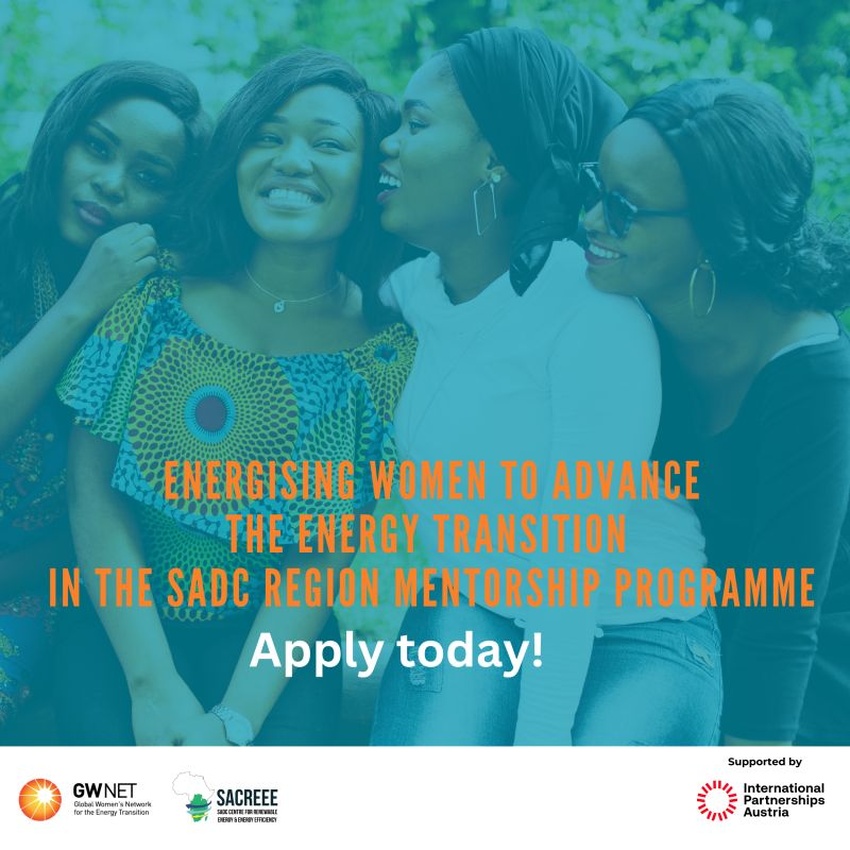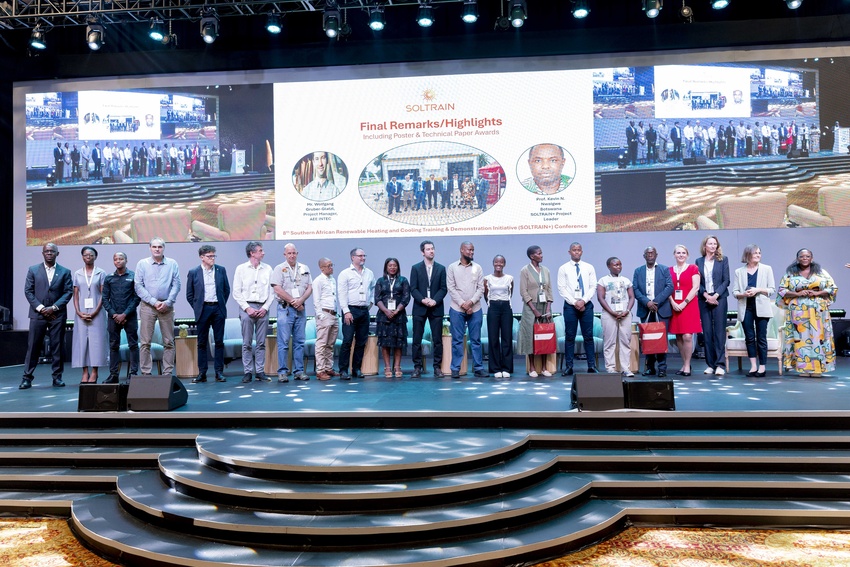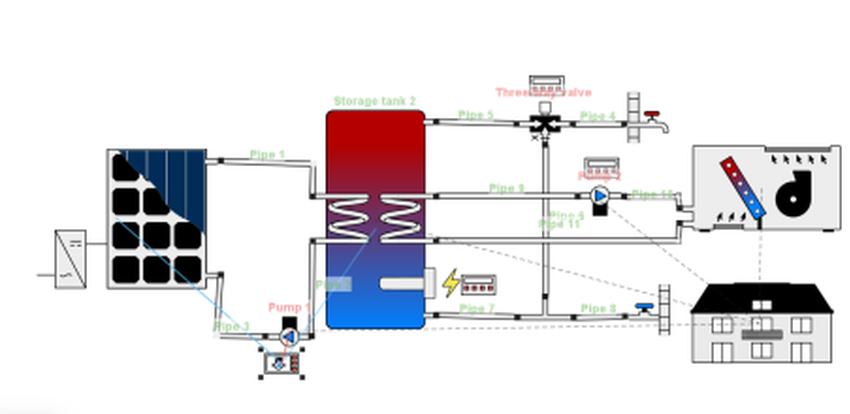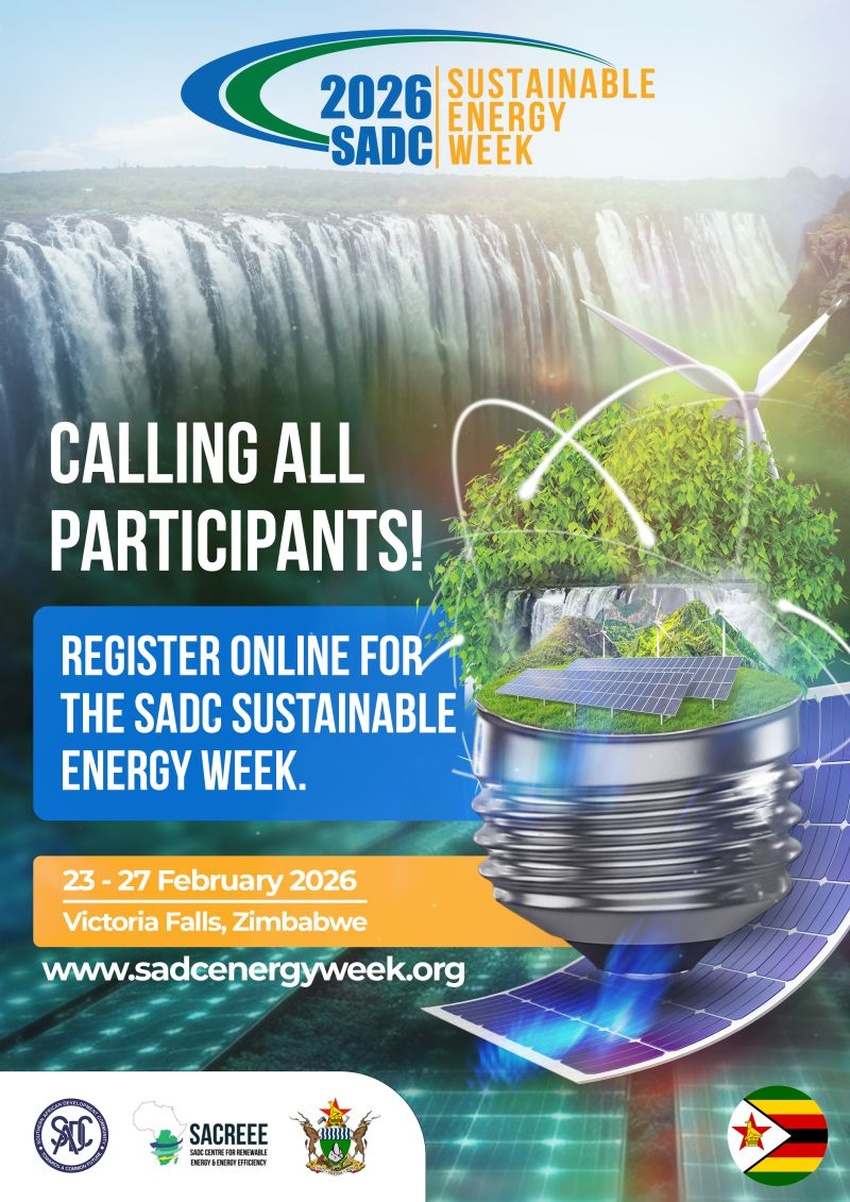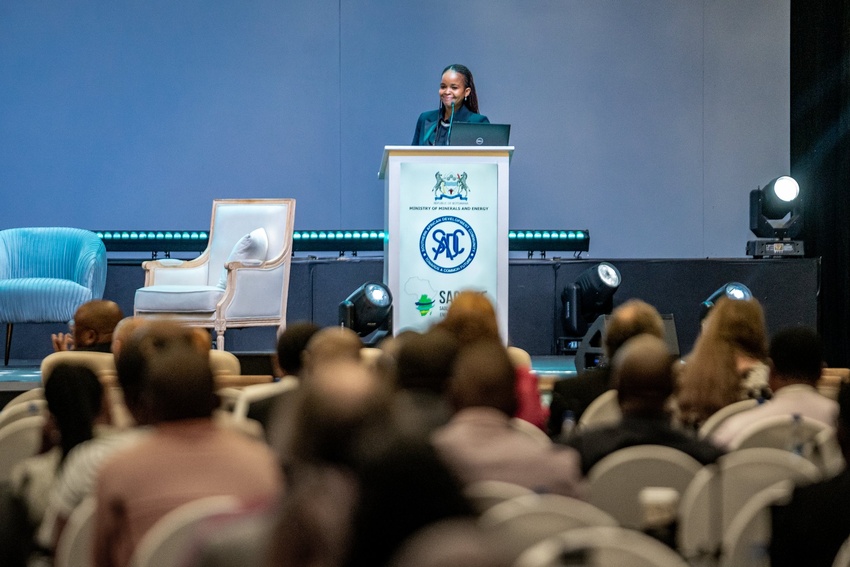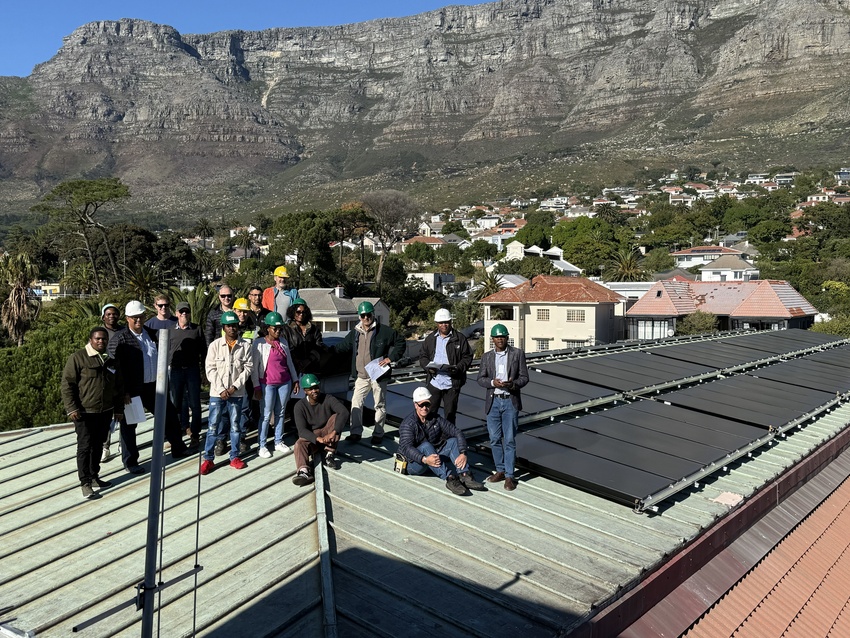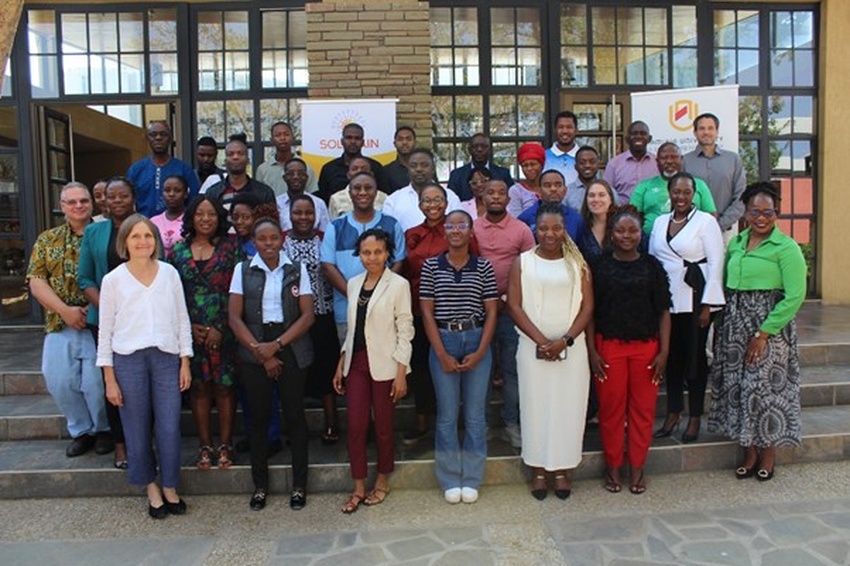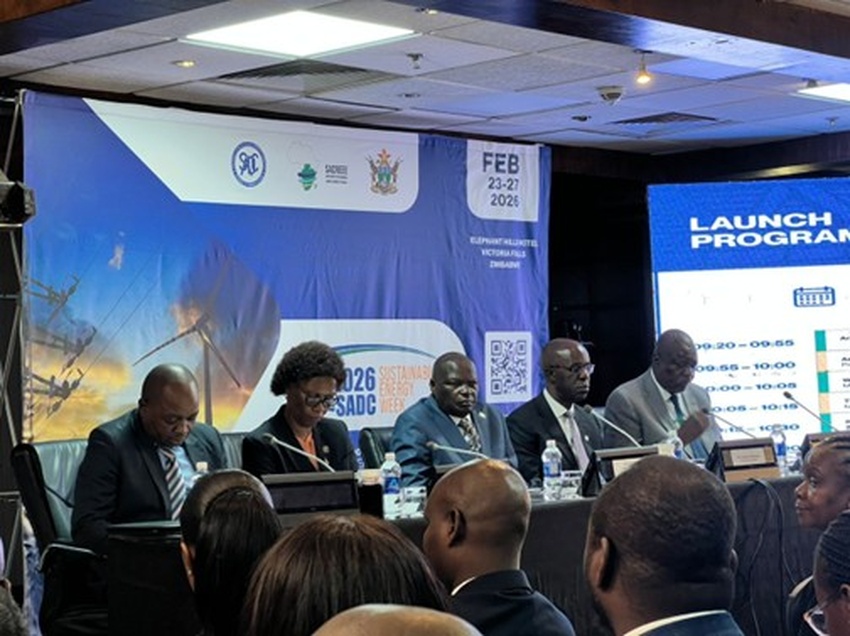SOLTRAIN Hosts Zimbabwe’s first solar heat policy workshop
Submitted by Samson Mhlanga and Blessed SaremaPublished 5 years, 3 months ago
Zimbabwe held its first-ever solar heat policy workshop in early February in Harare. The workshop was hosted by SOLTRAIN Zimbabwe and was held against the backdrop of the launch of the solar thermal roadmap and implementation plan in November 2018 and subsequent endorsement by the government in July 2019. It was aimed at informing policymakers on the future plans for the SOLTRAIN project and mapping the way forward in terms of implementation of solar heating systems guided by the national targets and the roadmap.
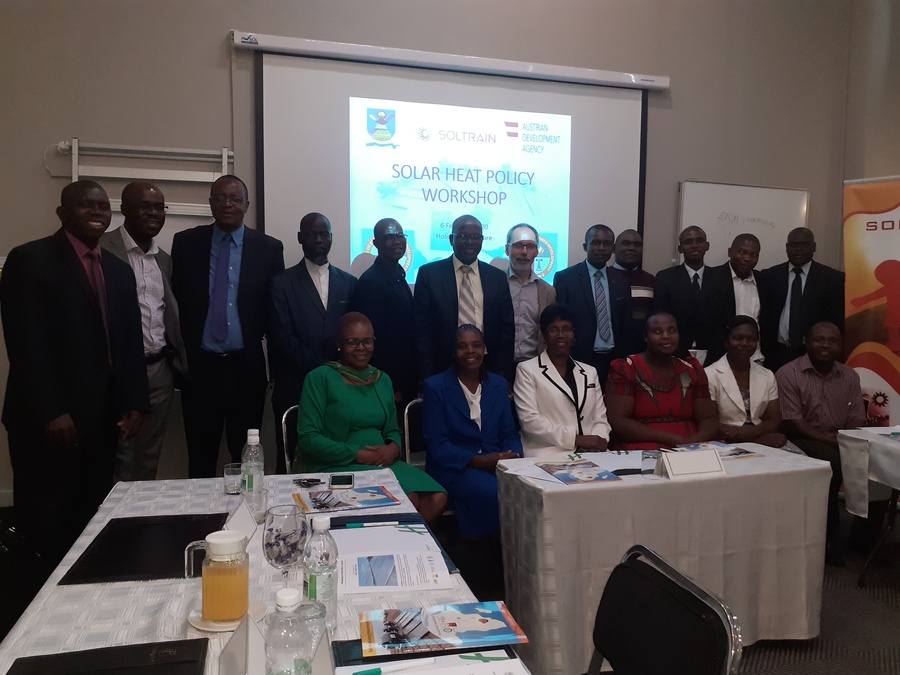
The guest of honour at the event was the Permanent Secretary in the Ministry of Energy and Power Development, Dr Eng Gloria Magombo, who reiterated the government’s commitment towards harnessing solar heat as an alternative source of energy for the country. She said that there was no doubt that solar heat has a role to play in easing the energy crisis the country is facing through solar water heating, industrial process heating, solar drying and solar cooling where appropriate.
The workshop brought together various players in the solar thermal industry and unpacked the Solar Thermal Roadmap and implementation plan for the country. The vision for the roadmap is to achieve 0.1 m2 per capita collector area by 2030, up from current levels of around 0.003m2 per capita. In other words, the country will move to a situation where on average, 3 families share a solar geyser from the current level of where 100 families share a single solar geyser.
At the workshop, Mr Werner Weiss took the opportunity to outline the continuation of SOLTRAIN into Phase 4. He gave a brief of the milestones that the previous phases of SOLTRAIN had achieved in the different partner countries and also outlined the various work packages contained in Phase 4.
The delegates were briefed on the role of the SADC Centre of Renewable Energy and Energy Efficiency (SACREEE) in terms of supporting governments in the operationalisation of the Roadmaps by Mr Kuda Ndhlukula, the Executive Director of SACREEE. Thereafter, the standards for solar heating installations and the accompanying Statutory Instrument (SI 235 of 2019) were also unpacked, demonstrating the government’s readiness to embrace solar heating as an alternative.
The workshop concluded that there was a need to transform the roadmap into a bankable document that would see solar thermal projects rolled out to meet the target for 2030. A steering committee was constituted to oversee the process of converting the Roadmap into a bankable project proposal. The subcommittee consisted of officials from the Ministry of Energy and Power Development, Zimbabwe Energy Regulatory Authority, SOLTRAIN Zimbabwe, other Government Departments and the Private Sector. The steering committee has already set the ball rolling with online meetings amid the COVID-19 pandemic.

